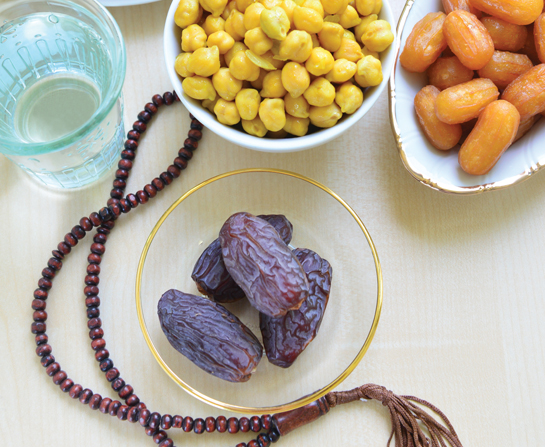Fasting During the Blessed Month
May 1, 2022 Return

Ramadan is truly a blessed month for Muslims, as it is a time for fasting, reflection, and religious devotion. Fasting allows Muslims to experience the hunger and thirst faced by those less fortunate, which in turn would encourage them to become more charitable to those in need.
Unfortunately, Malaysia is a country with high prevalence of diabetes. An estimated 1.2 million Malaysians have high blood sugar, and many of them would require additional attention and care should they decide to fast during Ramadan. In light of this, the Ministry of Health and the Malaysian Endocrine & Metabolic Society (MEMS) recently released the guidebook Practical Guide to Diabetes Management in Ramadan.
HealthToday attended the launch of this guidebook recently, and we are pleased to share with you some of the tips from the guidebook.
The following information is for general interest only. If you are diabetic wishing to fast during Ramadan, please consult your doctor, as you may need specialised precautions than those covered in this article.
Weighing the pros and cons
Discuss with your doctor the health benefits weighed against the risks when you fast during Ramadan.
Possible benefits
- Weight loss and a reduction in your body mass index (BMI)
- Increased levels of high-density lipoprotein (HDL) cholesterol, the “good cholesterol”.
- Improved glycaemic control.
- Improved blood pressure.
- Reduced risk of cardiovascular diseases.
- Boosts the immune system through elimination of toxins and regeneration of stem cells in the bone marrow.
Possible risks
- Risk of hypoglycaemia (up to 1.6 times higher)
- Risk of hyperglycaemia (up to 5 times higher) and ketoacidosis
- Risk of dehydration
Note: Patients who are of elderly age, pregnant, on certain medications such as insulin or sulfonylureas, living alone, or suffer health complications due to diabetes must consult their healthcare providers prior to fasting.
Getting ready for Ramadan
- Get a thorough health check-up 1-2 months before Ramadan, so that your healthcare provider can accurately assess your risks during fasting.
- Understand the precautions and monitoring measures you will need to carry out to ensure a safe and healthy fasting experience.
Precautions during Ramadan
- Diabetic patients who fall under moderate to high risk categories (your doctor will advise you on your risk status) should monitor their blood glucose 5 times a day.
Time of glucose monitoring | Insulin timing and type |
|---|---|
Mid-day | Pre-sahur Premixed/bolus/basal insulin |
Pre-iftar | Pre-sahur Premixed or basal insulin |
2-hour post iftar or bedtime | Pre-iftar Premixed or basal insulin |
Pre-sahur | Pre-iftar/pre-bed Premixed or basal insulin |
2 hours post sahur | Pre-sahur Premixed or bolus insulin |
- End fasting immediately if:
- Blood glucose falls below 3.3 mmol/l at any time during fasting.
- Blood glucose < 3.9 mmol/l in the first few hours of fasting (especially if you are taking sulfonylureas, meglitinides or insulin).
- Blood glucose ˃ 16.7 mmol/l.
- You experience symptoms of hypoglycaemia such as dizziness, confusion and pounding heart.
- You experience symptoms of severe dehydration such as confusion and fainting (syncope).
Breaking your fast the right way
- Eat healthy balanced meals with slow energy-release foods (such as whole grains and beans), spread out over 2 to 3 smaller meals during the non-fasting interval.
- Never skip sahur! Sahur should be a balanced meal with adequate amounts of carbohydrate, taken as late as possible (just before Imsak) to avoid unnecessary prolonged fasting.
- Do not delay “berbuka” or iftar. You can eat 1-2 dates at the start of iftar, but cut down on highly sugary kuih.
- Eat your main meal after the Maghrib prayers.
- You can have supper after Tarawih instead of a pre-bed snack.
- Eat plenty of fruits and vegetables during sahur and iftar as they are rich in high-fibre carbohydrates.
- Aim to drink 8 glasses of fluids a day during the non-fasting interval. Choose plain water or sugar-free beverages.
- Limit your intake of fatty, fried or highly salted foods.
Don’t forget to move!
Just because you are fasting, it does not mean that you cannot continue being physically active! You should continue to perform light and moderate intensity exercises regularly, preferably 1-2 hours after breaking your fast. Performing your Terawih night prayers can also help to maintain your physical activity.
If you like this article, do subscribe here.

